Have you ever wondered the difference between all the marathon training plans out there? How do you begin to pick a marathon training plan? Will a free marathon plan off the internet do the trick?
There’s a lot to consider when looking not just at the different styles of training, but at the levels provided by each running coach.
We’re going to first cover some basics of each plan to help you get a feel for the programs and then dive in the specific things you need to consider when picking the best marathon training plan for YOU.
While there are a WIDE variety of training styles, I’ve picked out some of the most common to breakdown for you. The programs I’ve selected for this article are focused on newer to intermediate runners.
More advanced training schedules for those really looking to hit Sub 3 hours like Pfitzinger’s Advanced Marathon plan or high volume of Lydiard are not included.
Today we are going to focus on Galloway, Hanson, Run Less Run Faster, Hal Higdon, Low Heart Training and lightly CrossFit endurance. So whether you’re training for London, Chicago, NYC or any of the other thousands of races, one of these plans will help you get there with confidence.
Comparing The Best Marathon Training Plans
Every marathon training program could be an entire article.
Which means for many of these you will find detailed articles providing more information included feedback from fellow runners and coaches who have completed marathons with it. That will provide you more information about who it works for and if it’s a good fit for you.
Since plans can run from low mileage with high intensity to high mileage with low intensity and a smattering of things in between, it’s confusing to understand what is really the best way to train!
My philosophy is that no “best way” exists, it’s about finding the program that WORKS FOR YOU and hopefully the following deep dives will help you make the best decision when picking a marathon training plan.
Marathon Training Programs
A quick comparison with links to additional details:
- Run Less, Faster method — 3 runs per week
- Hanson method — Shorter long runs, high volume focused on intensity
- Galloway method — Run-walk method
- Hal Higdon — Light on speed work, encourages cross training
- LHR method – Focus on building base and maintaining hormonal balance, fat burning
- CrossFit Endurance – Using CrossFit as base with much less running
Following I’ll provide a brief description of each marathon training program. As noted, you can read more on the additional pages once you’ve found what might work best for you.
What is the Best Marathon Training Plan?
Later in this article we’ll look at the questions you need to ask yourself to choose the right marathon training plan. But when looking at the overall structure of a marathon plan it should follow some key principles.
- Mileage should progress slowly to allow your body time to adapt (read how long does marathon training take)
- You should have a cutback week roughly every 3 weeks, that means a drop in volume and intensity to recover
- 80/20 principle should be followed to prevent injuries. This means 80% of your weekly workouts are an easy effort.
- Strength training should be part of your weekly training. If it’s not listed in the plan, you need to seek out ways to include it. This improves speed, endurance and is key to injury prevention.
- Includes a peak week followed by taper. Generally we recommend a two week marathon taper.
- Don’t get hung up on things being listed on a Saturday or Sunday. Move the schedule around, just keeping a few days between hard efforts like run workouts and long runs.
No one specific way of training will lead to a Boston Marathon Qualifying time. But certainly you’re going to find that more likely with enough interval training, specific goal pace work and usually higher weekly mileage.
Great now we’ve got some guidelines, so let’s dive in.
Best Beginner’s Marathon Training Plan
There are marathon programs that easily fall in to this group for first time marathon runners. My first pick is always going to be Galloway because I believe so many runners can benefit from the run walk run style of training.
Galloway Marathon Training Overview
Jeff Galloway is not the inventor of run walking, but he made the systematic approach to it accessible to hundreds of thousands of runners.
Offering a ton of basic free online marathon training plans, this is a phenomenal place to start for many runners.
- Runs are all a combination of run/walk/run at varying lengths
- Walking breaks help to reduce the intensity of the effort and are key to increasing running endurance
- Method can work for beginners to advanced runners
- Ideal in hot weather environments to train for long distances without overtaxing the body
- Ideal for coming back from injuries or postpartum running
- Since he does not emphasize strength training for runners, that’s a component you will need to add to the plans on rest days or as a second workout.
- His RunDisney training plans do not emphasize enough weekday miles and over emphasize a 26 mile long run
Read more about the Galloway Method >>
Hal Higdon Marathon Training Overview
Hal Higdon marathon plan and McMillan running plans fall in to your classical training plan program. He provides a wide range of programs for the new runner to the novice marathon runner and beyond, making it easy to slowly level up your training.
They follow a very similar pattern, which you’ve likely seen:
- 5 runs per week
- a long run up to 20-22 miles
- very low on speedwork across most plans
- recommends cross training
- slow and steady build
You can assume that 90% of the free training plans you find online are based upon that classical style of marathon training. One that I frequently recommend is from Train Like a Mother, though next March I’ll be pointing you to my new book!!
There are tons of these marathon plans and they absolutely work.
Read more about Hal Higdon Training Plans >>
I focused the in depth additional reviews on other plans that you may have seen less to help understand the differences in training methods and why they might work for some people and not others.
For example, my friend Corey thrives on the hard fast 16 miler, while I need the chill of LHR training to make it through months of long runs.
Best Marathon Training Plan for Cross Training
Run Less, Run Faster
Designed by a couple of triathletes, this plan provides plenty of room to spend time biking, swimming, hiking and doing other cross training. In fact, that’s a fundamental tenant of their program.
Many runners see that it’s only 3 days of running and stop there. But to get the full value of this program, they are recommending a good volume of cross training each week.
- 3 runs per week – tempo run, speed intervals and long run (often at marathon pace)
- 2 days of cross training — this is not strength work, but additional cardio workouts
- Great for those who don’t love lots of running or often get injured on high mileage
- Can be used for a first marathon if you’ve been training for awhile and the body is adapted to the stress of running
Read more about the Run Less, Run Faster Plans >>
Best Marathon Training Plan for Those Who Love Speed
Hanson Marathon Method
You may have heard of this method due to the fabled maximum 16 mile long run. It’s been used by athletes like Desi with great success and has some fabulous science behind it.
It’s also a plan that requires you to know your body, your capabilities and to truly understand what it means to run in a state of constant fatigue.
- Long run is 16 miles on many plans
- Requires running 6 days a week, which is how that long run can cap at 16 miles and work so well
- Does not leave a ton of time for strength training or other cross training
- Injury prone runners may find the intensity or lack of rest problematic. Others find that not having such long runs really works well for their body.
Read more about the Hanson Marathon Method >>
Best Marathon Training Plan for Chronic Illness or Injury
Low Heart Rate Method
This is the training style that I adopted in 2012 when my hormones went sideways. It’s what has allowed me to continue running at a fairly high volume while staying healthy, hitting PR’s and not feeling run down or injured.
- Initially the plan calls for nothing but slow easy running
- Once you have a base it transitions to an 80/20 model
- You’ll use a formula to define your MAX HR and keep all easy runs below that threshold
Read more about the Low Heart Rate Method >>
If there is another method you are curious about be sure to leave a comment!
Still not sure what plan is right for you? In personalized 1-1 run coaching, we can help you decide and create a personalized plan to get you to the finish line!
How to Pick the Best Marathon Plan?
Hopefully an inside look at each method will help you select a plan not just to survive, but thrive during marathon training!
For all of the training programs a few key factors should be considered when deciding which one is right for your body, your training and your goals.
Just because it works for your running partner or even your coach doesn’t meant it’s right for you.
Here are the biggest factors to consider when you choose.
#1 Current Running Ability
While selecting the best marathon plan that’ll work for you, this is probably the most important factor to take into account.
Your current level of fitness and your race goals must match the intensity or complexity of the plan.
For example, if this is your first marathon and you’re not very experienced as a runner, you should generally stay well away from advanced marathon training plans that feature high-mileage weeks and long runs that exceed the race distance.
If, on the other hand, you’re an experienced runner who wants to run better and set a PR than merely finish the next marathon, you should opt for an intermediate or advanced plan.
Plus, if you’re a newer runner, returning from injury, or have recurring injuries then selecting a high-intensity plan may be a recipe for disaster. These plans require dedication to proper running form, recovery, and nutrition.
#2 Training Philosophy
If you’ve made it this far in my article, then you probably know that marathon training plans may rely on different training philosophies or strategies.
Some may emphasize lesser mileage and higher speed, while others use walk/run programs with significant cross-training. Pick a training program that meets your needs and preferences as an athlete.
If you’re prone to injuries as a runner, look for lower mileage plans that incorporate low-impact cross-training to lessen injury risk. And if dread speed work, choose a plan that involves longer runs a couple of times a week but less emphasis on intensity.
#3 Training Timeline
Longer training plans (18-24 weeks) allow your body to gradually adjust to the higher volume of miles, but they also require extended mental and physical commitment.
- Advanced runners may find they peak too quickly on a longer training cycle and new runners can burn out.
- If selecting a longer plan, try having smaller goal races like a half marathon or 10K sprinkled throughout.
#4 Preferred Intensity
Does the thought of a track workout make you cringe or get your inner warrior fired up?
The use of speed workouts is going to appear in every plan, but the intensity level and repetition will vary, so look for the one that matches your preferred method of training.
#5 Running Frequency
Depending upon the other types of training you’d like to incorporate and your injury history this could be one of the biggest factors in plan selection.
- If you don’t like running 5 days a week, don’t feel pressured in to a training plan that requires it.
- If you love doing CrossFit as a runner or Zumba to spice things up, make sure your plan involves adequate cross training days.
- Many advanced training plans can have up to 6 days of running each week with very little cross training and that’s great if it excites you!
- Or you can scrap all that and go to a 10 day training cycle like Bart Yasso
#6 Long Run Preference
The crux of most marathon training plans is completing the weekly long run.
Each plan has a different logic behind the number and distance of long runs, reviewing that is important, but it’s also crucial to know what will help you mentally feel prepared.
Many runners enjoy doing multiple 20 mile runs because it gives them the confidence they need to cross the finish line, while others simply feel burdened by that schedule.
It’s also important to realize that one plan my work for many years and then suddenly you find you’ve plateaued or are injured or simply can’t keep it up as life changes.
That’s ok and normal! Don’t be afraid to explore other options when trying to pick a marathon training plan.
#7 Level of Excitement
As strange as it may sound, another factor that should not be overlooked when picking a marathon training work is the level of excitement you feel for it. is the thrill value.
Remember that you’ll be training for quite a while, and you want the race day to go as well as possible. It’s important to choose a workout plan that gets you excited which will also keep you motivated throughout.
What Should I Do if I Miss Some of My Marathon Training Plan?
It’s highly unlikely for a runner to complete their entire marathon training without skipping some runs due to things like illness, injury, or just life.
That’s when you need to consider just how much you’ve missed. As a general rule of thumb, if you’ve missed four weeks or more then you probably won’t have the time to catch up till race day.
But if you’ve missed two to three weeks or less, you still have time to get in your longest runs, which are crucial for race day.
If you’re just getting back into training after a minor injury or taking time off due to general life things, take a week or two to ease into a more moderate schedule and slowly increase your training volume.
You can also use the weeks you’ve missed as a guide to switching things around to slowly get to the right training level.
It’s also important to realize that one plan my work for many years and then suddenly you find you’ve plateaued or are injured or simply can’t keep it up as life changes.
That’s ok and normal! Don’t be afraid to explore other options when trying to pick a marathon training plan.
Looking for additional marathon training tips?
- Best Energy Gels for Runners
- Sub 4 Hour Marathon Training Plan
- Beginner Marathon Training Tips
- Marathon Pace Chart
Other ways to connect with Amanda
Instagram Daily Fun: RunToTheFinish
Facebook Community Chatter: RunToTheFinish
Sign Up to Receive a Weekly Newsletter with Top Running Tips
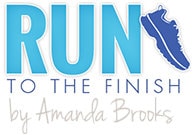

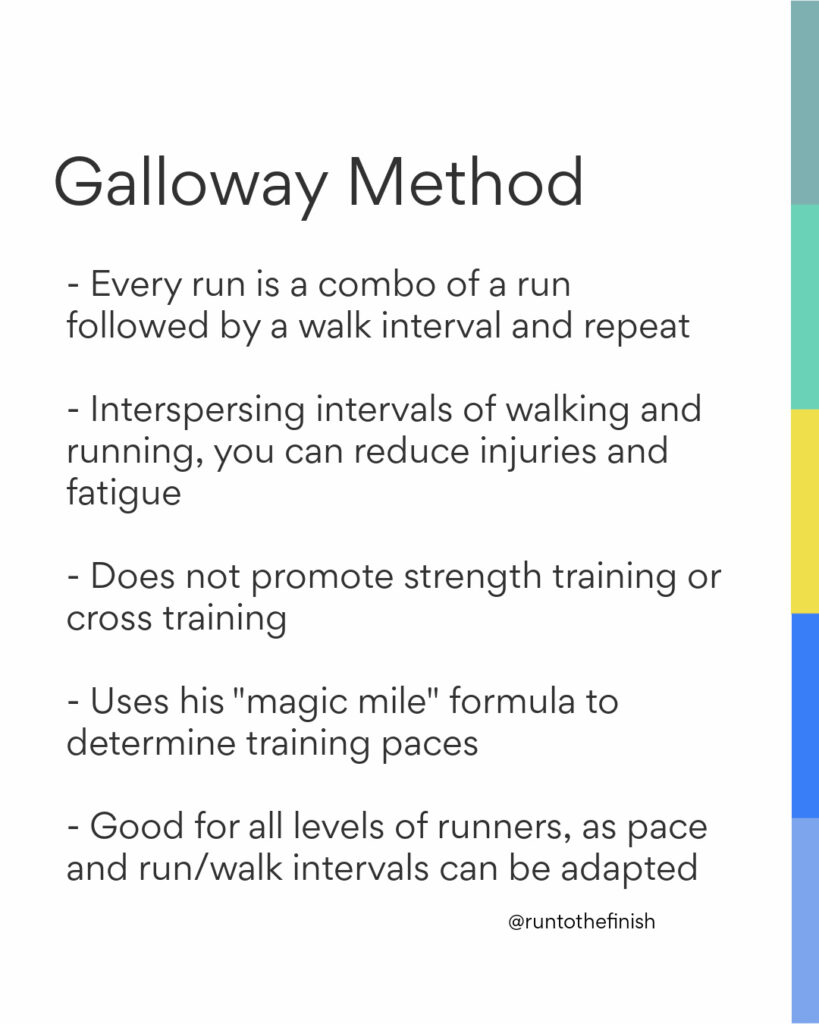
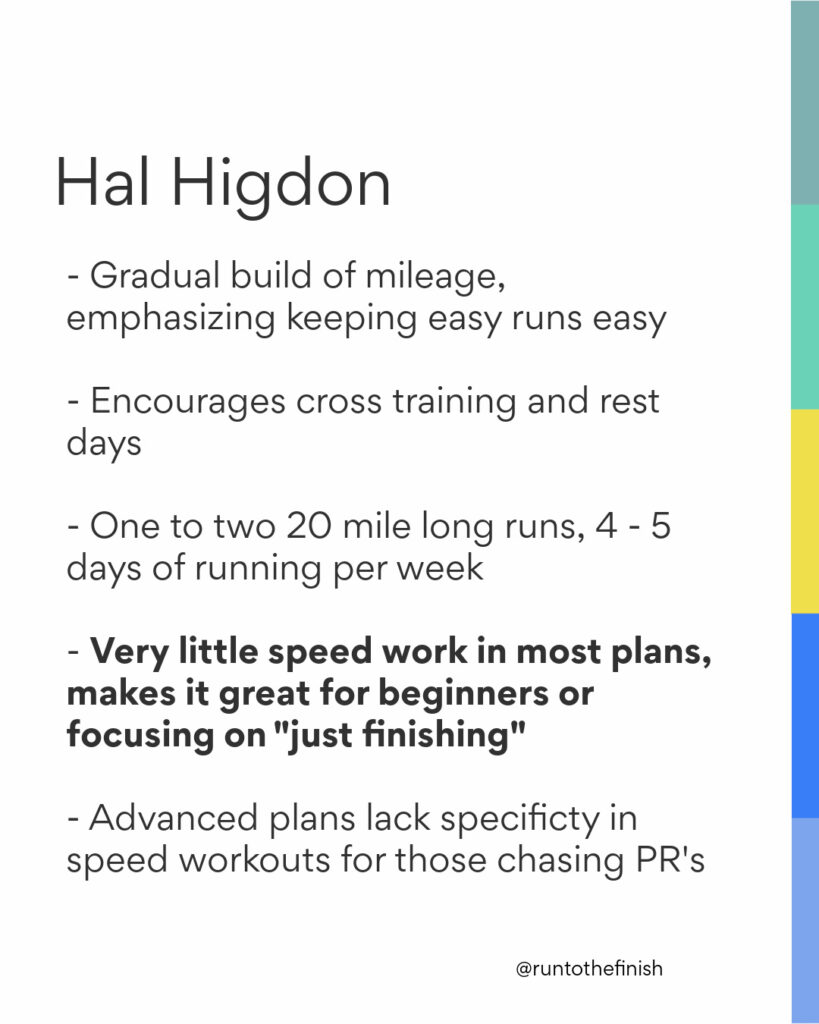
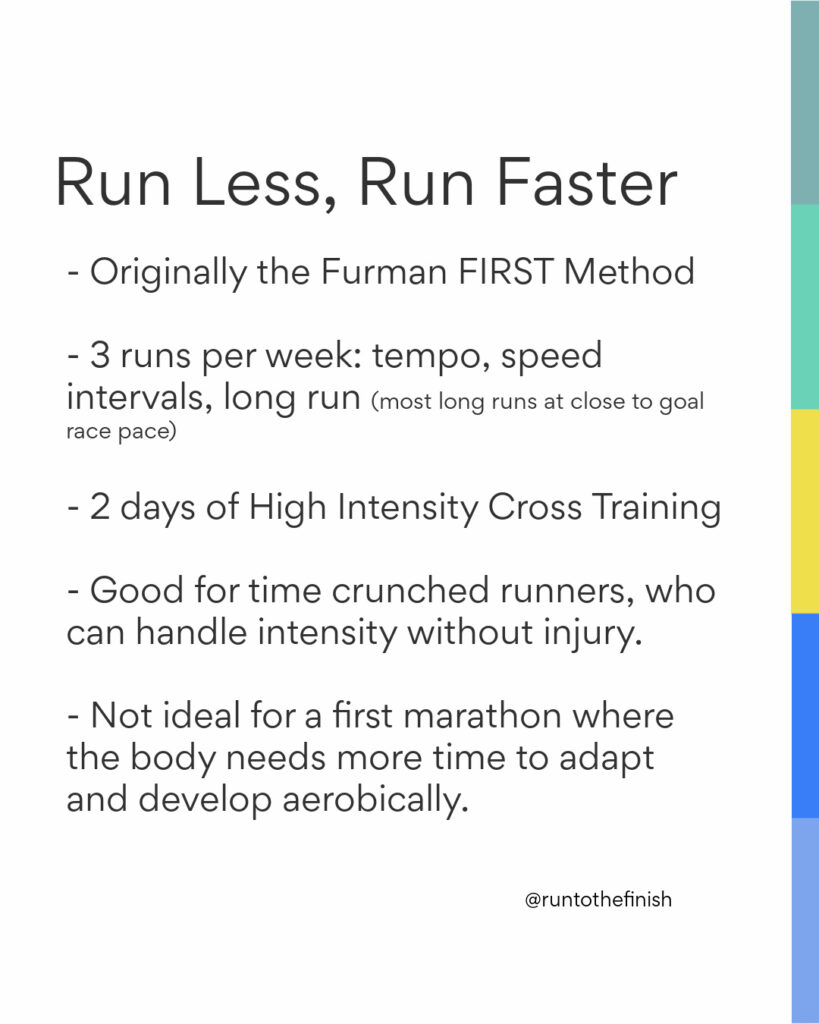
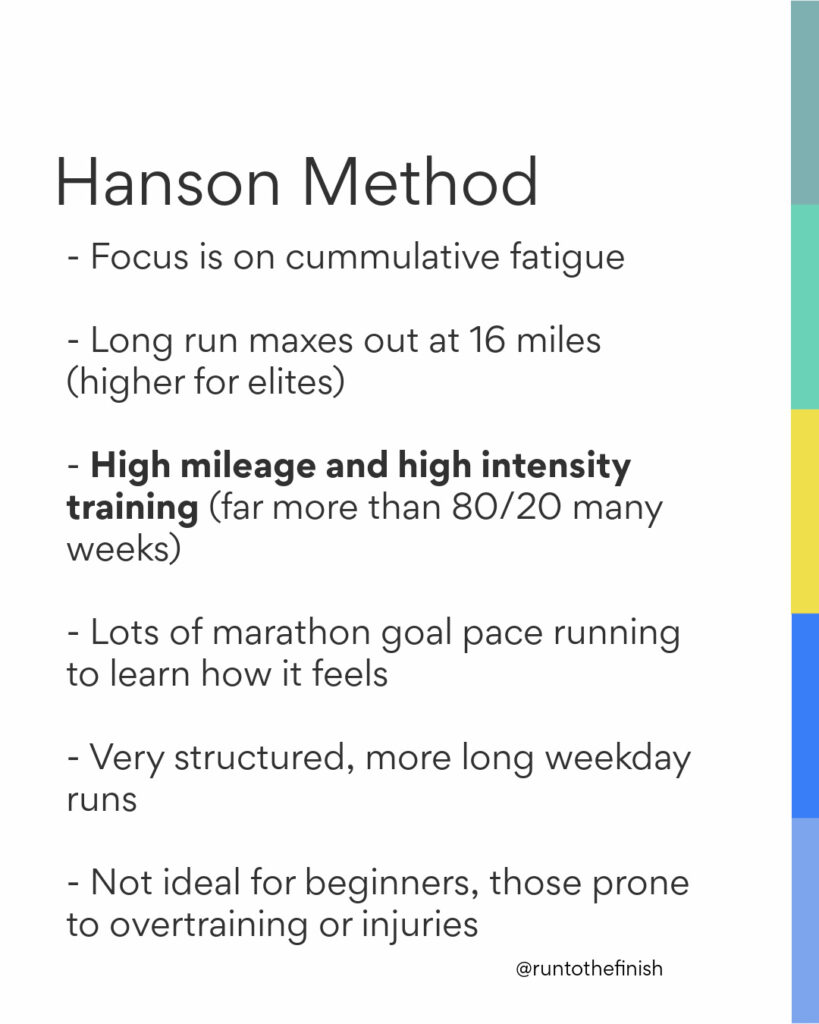
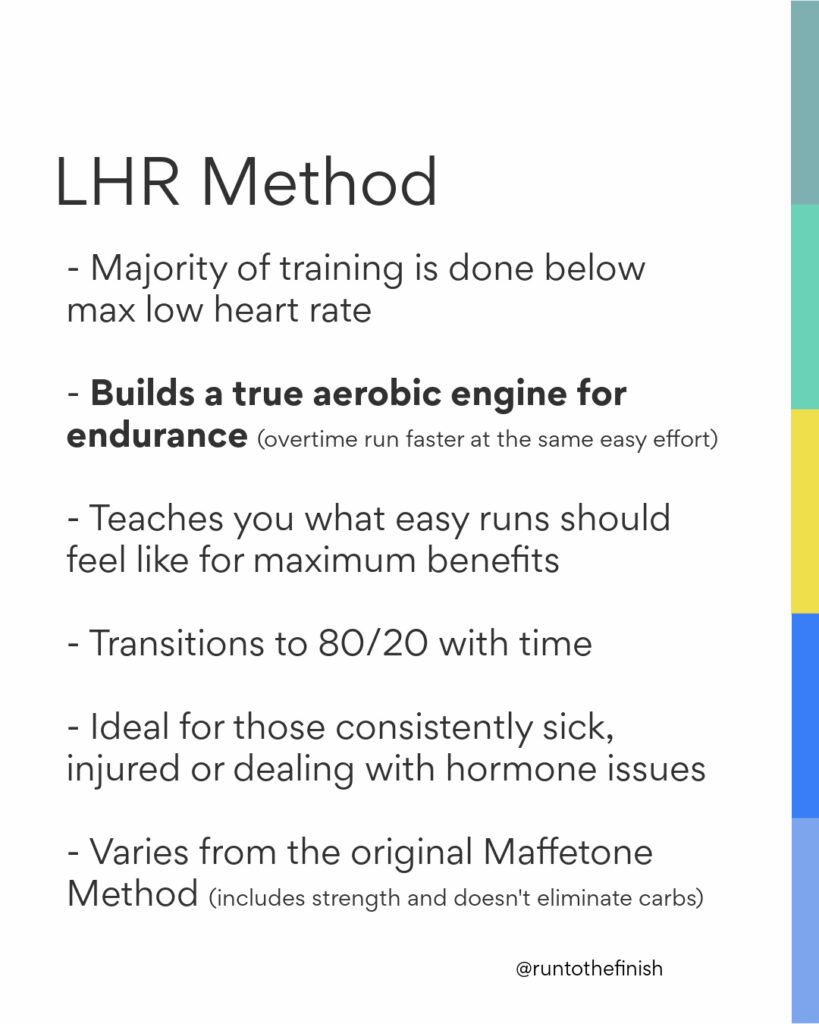
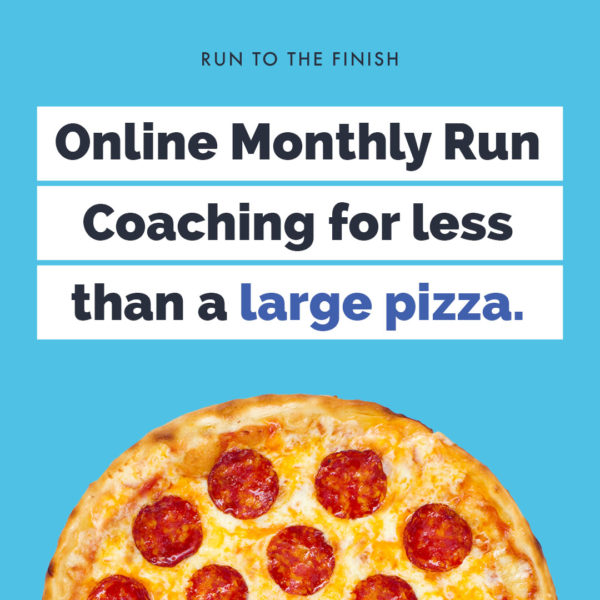

 6 Best Under Desk Treadmills
6 Best Under Desk Treadmills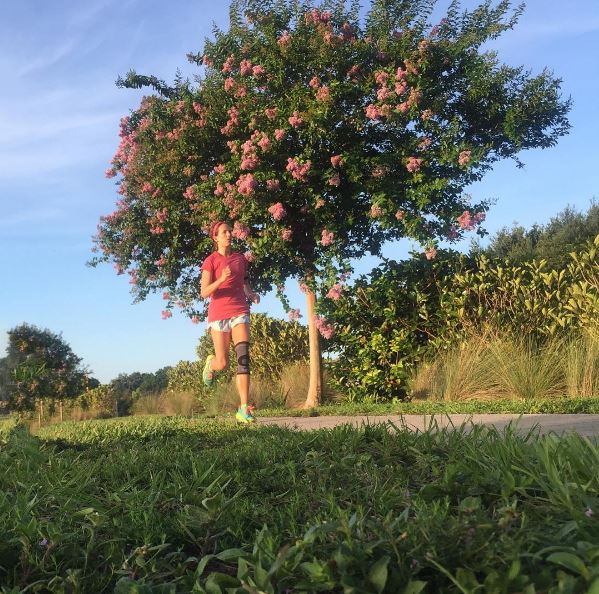

Coach Henness
Or better yet, a custom training plan with a certified running coach! ;-)
Susie @ SuzLyfe
PREACH
Noelle Eichenberger
Hal Higdon’s plan? That’s another one that is pretty popular…. I’m excited to read these posts!
Diana Fitts
I’m excited to read your take on these training plans! I have used the FIRST program and one from Competitor. My experiences were so different with each that it inspired me to write my most recent book on running goals. Choosing the right plan is essential to the overall success of the race and happiness with the experience.
Diana
betterthanalive.com
Laura @ This Runner's Recipes
I’m excited to read your take on plans! While Hansons didn’t work for me, their philosophy works really well for other runners I know. Although I advocate custom plans, I know that’s not a realistic option for every runner, so it’s good to be informed and have a coach’s’ opinion of the generalized plans out there.
Jessica
Hal Higdon??
Traci Havlik
Love Hal’s Plans!
Bethany
Thanks for writing such a detailed and objective comparison. I’m in the camp of a personalized coach beats all, but there are such great resources out there for athletes who want to go the self-coached route, too.
Bethany
https://bethanyrutledge.com
chloe
i had to chime in on this one! i’m currently training with Coached (coached.fitness – it’s Singapore-based, set up by a Kiwi) , their training plans are solely heart-rate/ time based – you can choose to track your distance as well with a GPS watch of course, but i’ve decided after a long hard debate with myself that it’d probably do me more harm than good so i’ve just gone off time and HR for almost a year now.
basically, you go for a LT test (or use the MAF formula and/ or do your own sort of trial) to get your heart rate zones. their zones are slightly different from the usual HR-zone training plans, and the training philosophy is on the low intensity/ high mileage end of the spectrum.
have been enjoying it loads, though like the MAF method, slowing down at first was H A R D. but i’m glad i stuck with it, i enjoy training so much more now (more than racing, ha) and i’ve also gotten faster at a lower heart rate. i got burnt out trying a couple of other online plans, including the train like a mother one – but it was probably my fault for not slowing down enough during my long runs. i think if you want to self-coach, you really have to have the discipline to slow down and admit to yourself that what you thought was your conversational pace… is not really your conversational pace after all!
my favourite distance is also the half-marathon. :)
amanda
agree, self coaching requires a ton of discipline. Especially with LHR because it can feel counter intuitive, but it works!
bottam
I am an office worker, sometimes busy with work and have little time to practice.
I often spend time jogging for myself in the early morning or late afternoon after returning home from work. Jogging helps my health improve a lot.
The knowledge you share makes the start-up and my exercises more complete.
Thank you very much
Important & Thanks